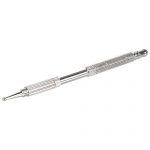Content
Support groups can provide a safe and supportive environment where people can share their experiences and support one another in their recovery. Medication can help to reduce cravings and manage withdrawal symptoms. It became her routine to sit down, sip her wine, and reflect on the day. This simple practice helped her rejuvenate and find peace amidst the daily hustle and bustle.
- First and foremost, it is important to understand that addiction is a complex issue, and it affects individuals differently.
- Some research suggests that drinking wine in moderation provides antioxidant and anti-inflammatory benefits that may improve your gut bacteria and boost your heart health, mental health, and longevity.
- Moderate drinking is defined as no more than one standard drink per day for women and no more than two for men.
- Addiction Resource does not offer medical diagnosis, treatment, or advice.
- Wine increases the risk of cancer especially of the breast, with moderate amounts of alcohol, to a level like that of smoking 10 cigarettes a week.
My alcoholism is something that I knew for a long, long time so I never really had an argument about that. I felt that it would be ripping a huge part out of my life to stop drinking. Hanni has been sober for 25 years and his perspective is, obviously, both informed and unique when it comes to maintaining a healthy lifestyle while working as a professional in the alcohol industry. Though Hanni is exceptionally articulate and candid about his experience, he maintains that he is far from alone in the struggle against over-consumption and lack of balance. Almost 30 percent of survey respondents who drank spirits said that they felt more aggressive when they chose this type of alcohol. By contrast, only 2.5 percent of red wine drinkers blamed this beverage for a rise in feelings of aggression.
Question 2: What are the Signs of Alcohol Addiction?
Some physical effects of wine consumption include impaired speech and movement, increased blood pressure and cardiovascular diseases, and liver damage and increased risk of cancer. It can be a little confusing to find out how wine intake can impair health. Moderate consumption may have health benefits and these often directly contradict the negative health effects of drinking.
In other words, if you didn’t drink wine before, you don’t need to start simply for the health benefits. The US government’s most recent dietary guidelines make similar recommendations. They suggest that, if you drink alcohol, you should do so in moderation, which means one drink for women and up to two drinks for men per day (31). People have been drinking wine for thousands of years, and the benefits of doing so have been well documented (1). Medical detox helps to reduce withdrawal symptoms, prevent complications during withdrawal, and prepare a patient for behavioral treatment. Detox is often considered a vital first step to alcohol treatment and may be required for the safety of a patient.
What is considered 1 drink?
You get off at midnight, you’re wired, then you go out with a bunch of people who are in the business because of the flexibility and the transient nature of restaurant work. There’s a lot more professionalism now and a lot more structure, especially in the best restaurants. The team explains that these https://ecosoberhouse.com/ results suggest that people who drink excessively may feel motivated to do so because they expect that alcohol will boost positive emotions. In some people, the initial reaction may feel like an increase in energy. But as you continue to drink, you become drowsy and have less control over your actions.
This can be upping how much you drink from one glass per night to three, or from two bottles a night to three. And so is having the rising tolerance to be able to increase how much you drink. For those seeking addiction treatment for themselves or a loved one, the addictionresource.com helpline is a private and convenient solution. Calls to any general helpline (non-facility specific 1-8XX numbers) for your visit will be answered by American Addiction Centers (AAC).
Addiction is a disease, we have addiction medicine that saves lives.
The holiday season is a great time to make new traditions with friends and family. Check out our roundup of sober-friendly activities in and around Charleston this weekend to get in the spooky spirit. Wine tasting, appreciation, and enological practices are essential in the world of wine. Whether you are a novice or an expert, understanding wine tasting and enological practices can enhance your enjoyment of this complex beverage.
- It is important to consume wine in moderation, taking individual tolerance and potential risks into account.
- Knowing your personal risk based on your habits can help you make the best decision for you.
- The Healthy @Reader’s Digest’s Medical Review Board co-chair Latoya Julce also notes the caloric content of red wine can contribute to that full feeling—and it can add up.
- Some people also experience memory loss and time misperceptions when they overindulge.
- Studies have shown that moderate wine consumption, particularly red wine, may have positive effects on cardiovascular health due to its antioxidant properties.
If you have any concern that our content is inaccurate or it should be updated, please let our team know at [email protected]. However, drinking more than a couple of glasses of wine each day, or drinking alcohol in excess over time, can also damage your long-term health and wellbeing. To recover from wine addiction, most people will need to quit wine altogether. One of the most common signs of wine addiction is the presence of withdrawal symptoms when a person quits using it.
Swirling the wine in the glass helps release its aromas, allowing you to fully experience its bouquet. Take note of the scents and aromas you detect, from fruity and floral notes to earthy or oaky undertones. It brings people together, has cultural significance, enhances dining experiences, allows for exploration and knowledge expansion, and signifies status and sophistication. Research has shown that alcohol affects the hippocampus, a vital region for memory formation and retrieval. Consequently, individuals may struggle to recall events or information after consuming wine. To exemplify the allure of wine drinking, let’s reflect on a true story from a small vineyard in Italy.
Studies have shown that moderate wine consumption, particularly red wine, may have positive effects on cardiovascular health due to its antioxidant properties. However, it is important to remember that moderation is key and excessive alcohol consumption can have detrimental effects on our health. Long-term effects of drinking wine include high blood pressure, memory loss, liver damage, and an increased risk of cancer.



